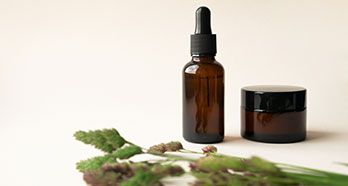Secrets of Asthma Revealed
Could Viral Infections be the Cause of Asthma?
Asthma may affect millions of us around the world; however its cause has until recently remained a closely guarded secret.
Luckily, scientists now believe they may have found a cause.
According to US researchers, infections – in particular RSV or Respiratory Syncytial Virus - have been found to cripple part of the immune system in newborn babies preventing regulatory T cells from being able to calm down inflammation.
As a result dust mites, pets and mould, all trigger inappropriate anti-inflammatory responses that can irritate the airways and cause them to tighten and become inflamed.
In fact during one Swedish study, they found that 39% of infants taken to hospital with RSV had asthma by the time they were 18. Only 9% of infants who were not ill developed asthma.
What does this mean?
Admittedly this information doesn’t provide much support for those of you who already suffer from asthma.
However should the University of Pittsburgh School of Medicine prove successful with their research then we may be able to devise treatments (both prophylactic and therapeutic) which can reduce the effects of asthma or prevent it altogether.
Until then though, there are a number of things you can do to reduce your symptoms and keep your airways free from triggers.
Minimise contact with pets known to trigger asthma (cats, dogs).Whilst many believe it is their fur that triggers asthma, it is actually their dead skin cells (dander), which when met with saliva causes inflammatory reactions in you lungs. To help minimise this: wash your hands immediately after touching; do not let them into your bedroom or car and keep them away from your face.
Free your home from dust mites by: washing your sheets in hot water every week; enclosing your mattress in an airtight cover; using polyester or Dacron pillows and enclosing them in airtight dust covers; de-cluttering to prevent dust catchers and when cleaning covering your mouth and nose.
Minimise mould and the spores they create by: keeping your windows closed; removing mould from your bathroom (whilst wearing a mask); making sure mould isn’t hiding away in your closets (or unworn items) and checking your plants for mould growth.
Natural home remedies for asthma
Whilst avoiding animals and freeing your home of mould, pollen and dust mites can help to reduce the frequency of your attacks, they aren’t your only option. In fact, there are a number of natural home remedies which can help you to breath easier, overcome inflammation and ultimately reduce your symptoms.
Fennel Seeds and Anise Seeds – take a heaped tablespoonful of each and grind with a pestle and mortar. Once ground you can brew them in boiled water for 10-15 minutes to create a tea that will help you to breath easier, loosen bronchial secretions and treat coughs (thanks to its antispasmodic properties).
Green or Black Tea – both contain theophylline that helps to relax the smooth muscles in your bronchial tubes.
Licorice – according to Chinese medicine Licorice is a great detoxifier and can increase the effectiveness of cortisol in your body (take in small doses).
Ginger – a natural anti-inflammatory Ginger helps to decrease inflammation.
Yerba Mate – believed to stimulate your adrenal glands so they release corticosteroids this can reduce inflammation and relax your airways.
Each of these remedies can help to reduce the severity of your asthma attacks so you can experience a better quality of life. So why not give them a try and witness the difference they make to your health.
No related posts.
 Looking for Qualified Advice on Herbs & Supplements?
Read our health guides, quick tips and popular posts on a range of health conditions, products & fitness
Looking for Qualified Advice on Herbs & Supplements?
Read our health guides, quick tips and popular posts on a range of health conditions, products & fitness
- Aromatherapy (19)
- Cold, Cough & Flu (12)
- Food & Supplements (38)
- Hair (17)
- Headaches & Stress Relief (18)
-
Health & Home (117)
- Allergies (4)
- Beauty (21)
- Blood & Circulation (10)
- Bone Strength & Dental (2)
- Breathing Conditions (3)
- Concentration & Focus (8)
- Digestion & Heartburn (7)
- Exhaustion & Fatigue (15)
- Homewares (3)
- Libido (3)
- Mens Health (22)
- Mother & Baby (1)
- Muscle & Joint Pain (9)
- Sleep Aids (10)
- Stress (3)
- Womens Health (24)
- Homeopathy (38)
- How To's & Guides (128)
- Product Information (30)
- Seasonal Remedies (34)
- Skin Care (35)
- Weight Loss (19)
- Events & Things To Do (7)
- 2024
- 2023
- 2021
- 2020
- 2019
- 2018
- 2017
- 2016
- 2015
- 2014
- 2013
- 2012
- 2011
- 2010
- 2008
- 2007
- 2004
- 2002
- 2001







 At number 64, our Walworth Road Shops are featured in Time out London’s
100 best shops and we couldn’t be more delighted!
At number 64, our Walworth Road Shops are featured in Time out London’s
100 best shops and we couldn’t be more delighted!

 View our Catalogue online.
It is stocked full of our latest oils, beauty products, health foods & gifts.
View our Catalogue online.
It is stocked full of our latest oils, beauty products, health foods & gifts.